【filme erotice gay】
Tina Barney’s Embarrassment of Riches
Look
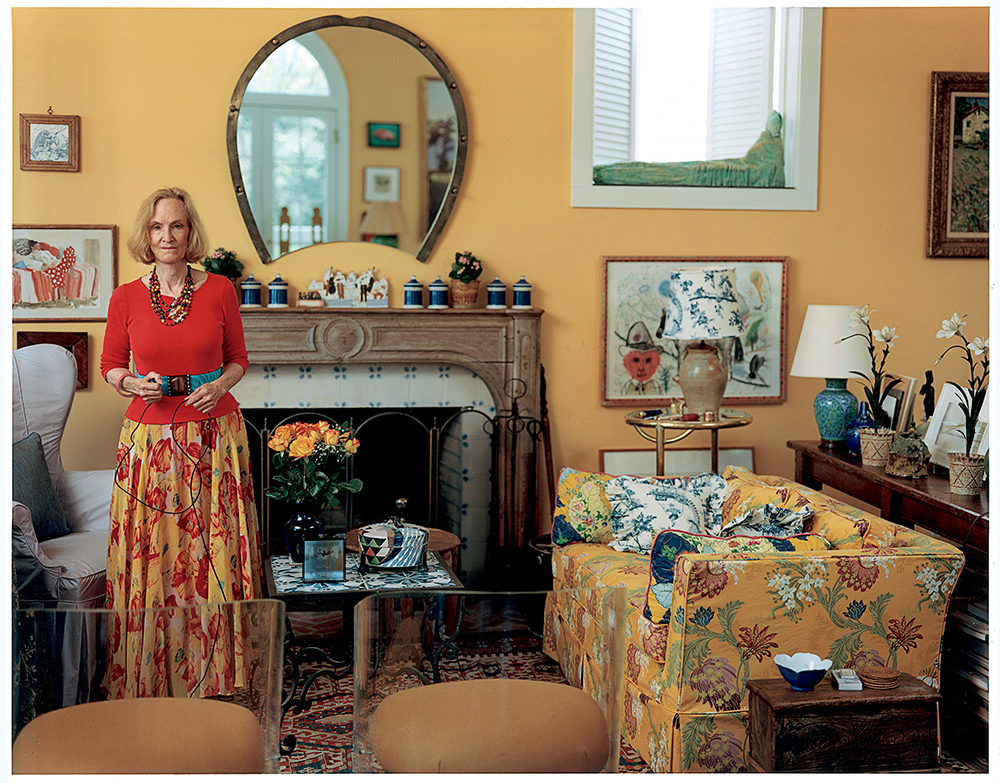
Tina Barney, Self-Portrait, 2014.
For the photographer Tina Barney, proximity to, and membership in, the upper class has come to define her body of work chronicling the life of the patrician set. Her images, taken over some forty years, are at once a choreographed glimpse into the lives of the leisure class and candid meditations upon universal themes of family. Barney’s recently published an eponymous monograph—with an introduction by Peter Galassi, the former curator of photography at the Museum of Modern Art—comes at a time when economic inequality is at the forefront of people’s minds. Here, she reflects on the critical reception of her work, the importance of time in her photographs, and the role of family in creating them.
INTERVIEWER
You’ve noted many times in past interviews that you’ve never consciously set out to photograph the “upper class.” You were, in your words, “photographing family and friends.” How do you respond to those who discuss your work within the context of wealth, of social status?
BARNEY
I never really think about it. It’s the viewer, the writer, the critic, who puts that subject matter on me. It’s almost not interesting for me to talk about it, but then, people are so fascinated by it that I guess it must be interesting. My fascination is with the repetition of traditions and rituals. The idea that families, no matter where they come from, kind of do the same thing. They get up, they make breakfast, they go to school, they come back, they have Christmas, they have Halloween.
INTERVIEWER
Where do your photos fit within the climate of America today versus when you were exhibiting them in the eighties? It seems to me that the eighties embraced wealth, and that that attitude changed after the 2008 financial crisis.
BARNEY
Let’s just say it’s not the tools that are different, it’s the props.
INTERVIEWER
Perhaps, because of the intensive setup involved in shooting on large format, your images possess a tension between the composed and the candid, the staged and the spontaneous.
BARNEY
You got it. They’re kind of sloppy. Really, if you go back and look at images from the eighties, there are so many photographic mistakes that most people wouldn’t keep, and that’s the difference—I would leave the mistakes. I think that’s why they look unpretentious and believable.
INTERVIEWER
Speaking of timing, your photographs seem to exist in this perpetual summer.
BARNEY
That’s because it’s the best time to photograph, right?
INTERVIEWER
You’ve said before that when you first began taking pictures, you photographed what was in front of you—your family. But why have you continued to photograph them?
BARNEY
I felt I hadn’t finished answering a question. It just kept on getting more interesting. The deeper I went, the more interesting it became. It’s like a drug. I just can’t stop. I could go on forever and ever. I could keep photographing. I haven’t finished yet. It just isn’t finished.
INTERVIEWER
How do you see your images connecting with millennials, with the younger generation?
BARNEY
I have absolutely no idea. I hadn’t thought about it. I have a terrible feeling, because I mentor at the School of Visual Arts, that people that age already don’t really care about my photographs. I think they’re interested in things that go fast, and in otherworldly experiences.
INTERVIEWER
If you ask me, Newport, Rhode Island, can be otherworldly, too. Last question—why do you prefer printing your images in such large format?
BARNEY
In my big prints, I want everybody to be able to see the detail of the quality in the pictures. Of course, my photographs aren’t monumental at all when you compare them to the other things happening in photography now. But back in the eighties, it was a big deal. And for me, it was in order to see more. That’s all I wanted to do.
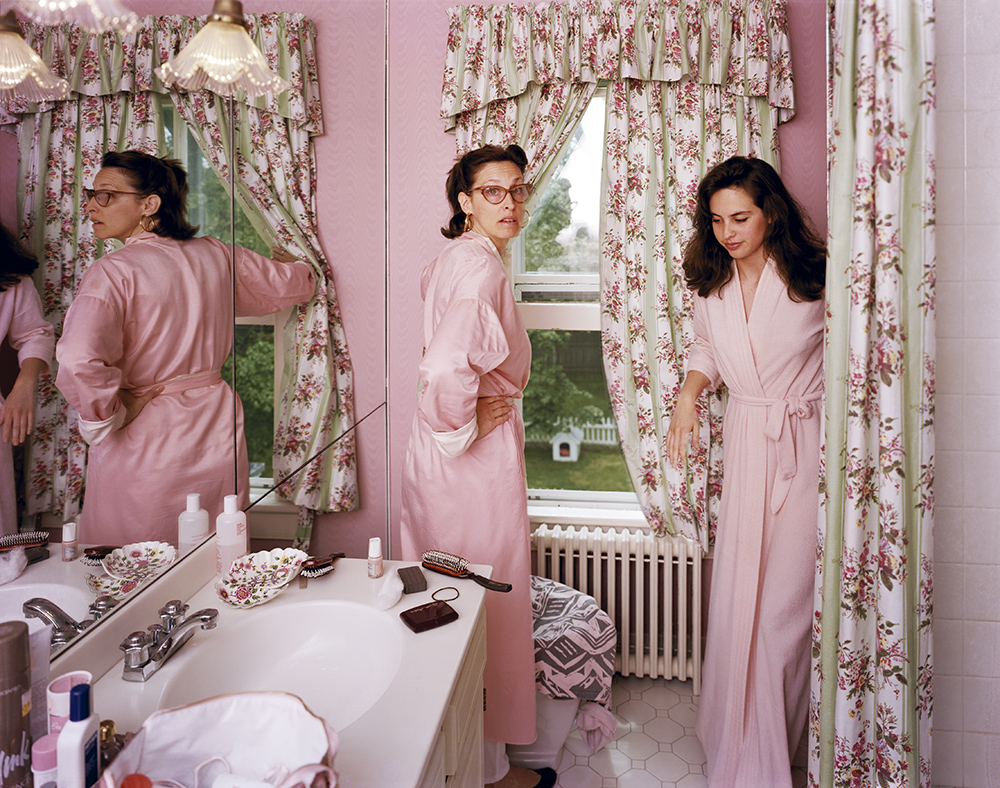
Jill and Polly in the Bathroom, 1987.
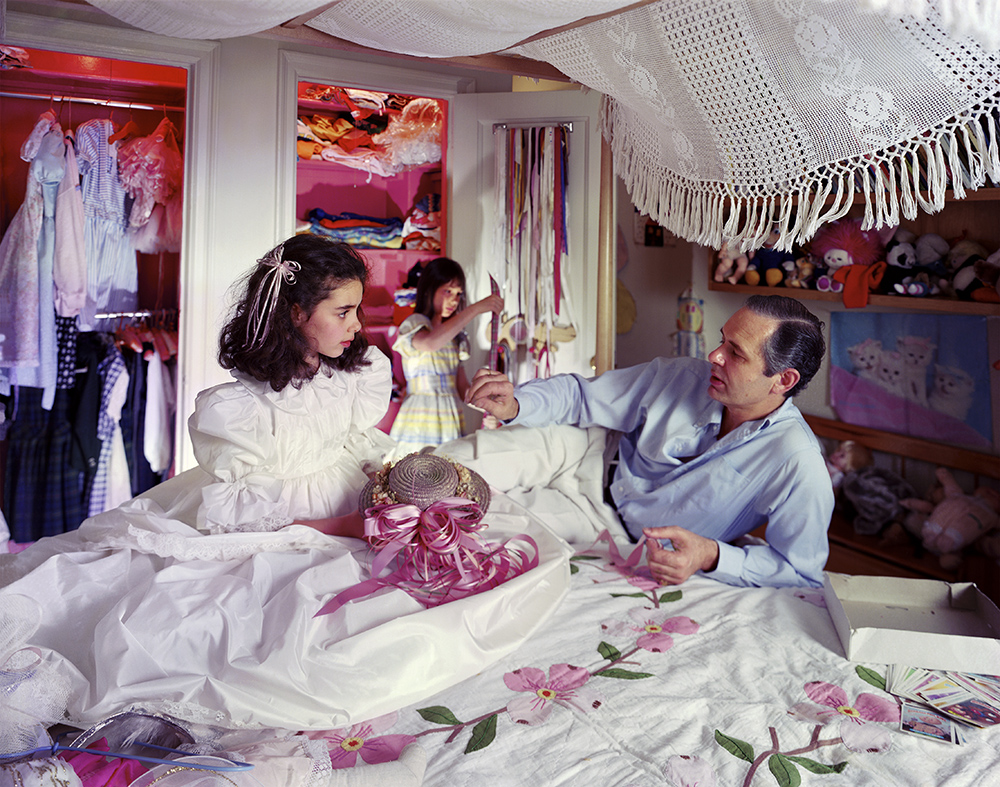
Marina’s Room, 1987.
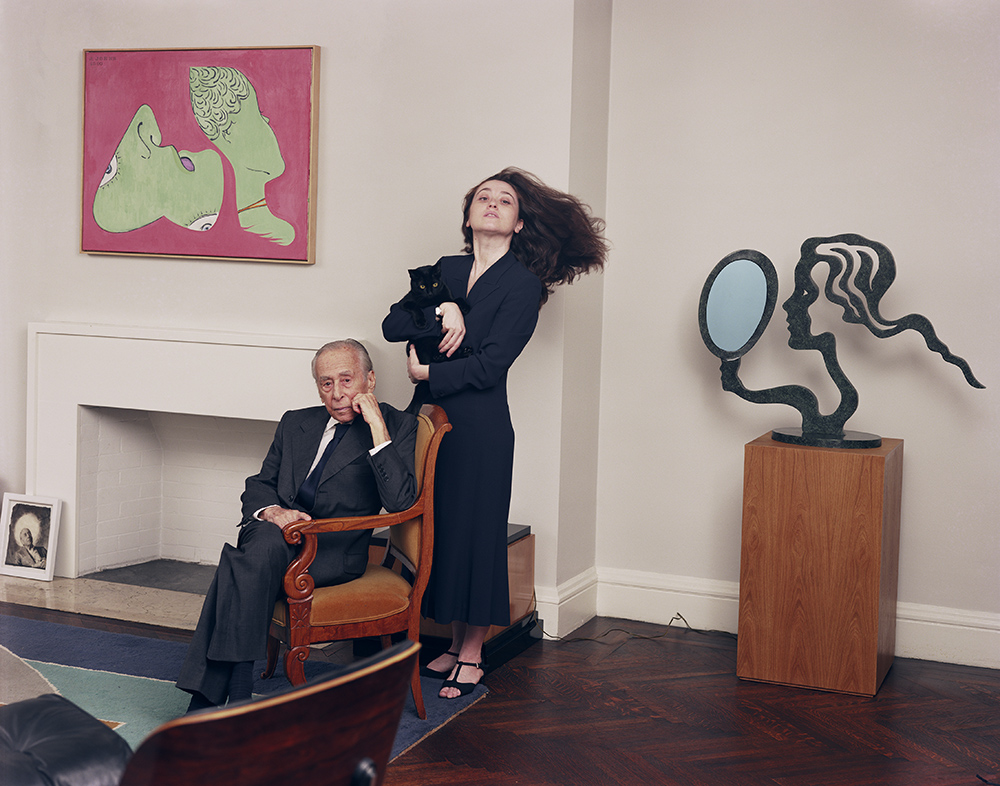
Mr. and Mrs. Castelli, 1998.
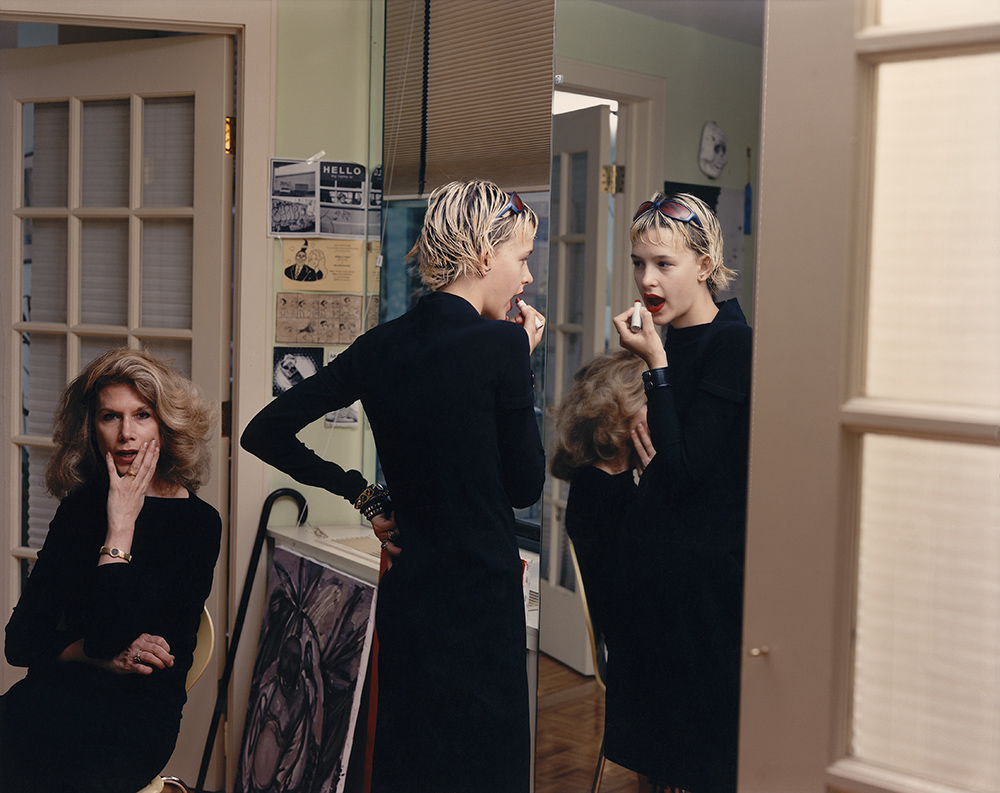
The Lipstick, 1999.
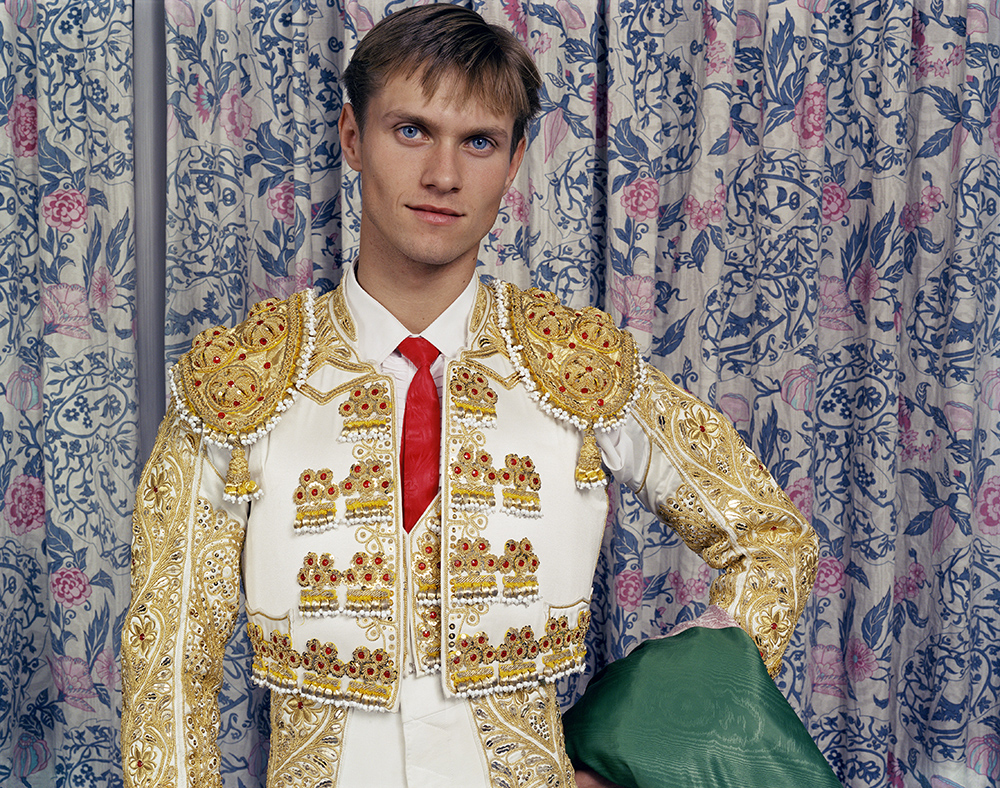
The Matador, 2003.
Joseph Akel is a writer based in New York City and San Francisco. A regular contributor to Artforum, Frieze, and ArtReview, among others, he is a Ph.D. candidate in the University of California, Berkeley’s Rhetoric Department.
Search
Categories
Latest Posts
Spaghetti donuts are the latest frankenfood obsession
2025-06-26 23:30EPA won't ban this chemical even though agency scientists want to
2025-06-26 22:42How to Get Your Significant Other Into Gaming
2025-06-26 22:27Popular Posts
Use Gmail Filters to Automate your Inbox
2025-06-27 00:39Most of Square's small business loans are going to women
2025-06-27 00:00Snapchat Stories search is here, will deluge you with puppy videos
2025-06-26 23:35Featured Posts
Best iPad deal: Save $70 on 10th Gen Apple iPad
2025-06-27 01:09Twitter is loosening up its 140
2025-06-27 00:12Stop dropping April Fools' jokes a day early. Now.
2025-06-26 22:52Popular Articles
How I met my partner on X/Twitter
2025-06-27 00:17These teens faked a proposal because free food is everything
2025-06-26 23:44New discovery reveals the T. Rex was actually super into foreplay
2025-06-26 23:25Clean energy projects soared in 2016 as solar and wind got cheaper
2025-06-26 23:01Newsletter
Subscribe to our newsletter for the latest updates.
Comments (7963)
Upward Information Network
NYT Connections Sports Edition hints and answers for February 15: Tips to solve Connections #145
2025-06-27 01:10Creation Information Network
Why this penis is on a subway seat, making people uncomfortable
2025-06-27 01:09Information Information Network
Uber driver picks up her boyfriend's other girlfriend and then sh*t really hits the fan
2025-06-27 00:34Belief Information Network
Nothing to see here, just an alligator in a furniture store
2025-06-27 00:18Warmth Information Network
Celtic vs. Bayern Munich 2025 livestream: Watch Champions League for free
2025-06-26 23:47